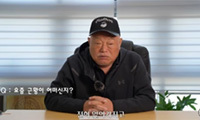Rising Economies Force a Shift In Power Balance

China is no longer content to take trade advice from the West. An optical factory in Wuhan.
By DAVID E. SANGEROver the last two decades, China has managed to turn the forces of globalization into the most successful antipoverty project the world has ever seen. So how does one explain the fact that when the latest round of global trade negotiations blew up for good at the end of July, ending seven years of talks to lower tariffs and free up trade around the world, it was China with a hand on the detonator?
The answer has a lot to do with how the world - and China in particular - has changed, and a lot to do with how the Chinese see the world that’s coming. In that world, countries like China and India will have much more clout at the bargaining table because they have much greater economic power than in the past.
It is not that the Chinese think the great era of globalization is over. Far from it. The glistening Beijing of today was built on dollars, yen and Euros earned around the world, and now being lent back to the United States.
But the era in which free trade is organized around rules set in the West - with developing nations following along - definitely appears over, and few are mourning its demise.
The system is being rethought in China and India and other countries that spent the 1990s trying to become integrated into the global trading system by accepting the West’s rules. They applied to join the World Trade Organization, using its mandates to speed up reforms at home and pump out cheap exports. But now they are done with that phase.
When the Chinese finally took the so-called Doha round of trade talks off of life support recently, teaming up with India to say they would not stop protecting farmers in order to get tariffs reduced on their expanding industrial exports, it was no surprise.
This wasn’t about tariff rates. It was about a fundamental shift in power - sophisticated manufacturing capacity, know-how and capital - that the United States, emerging from its own preoccupation with two wars, is just beginning to appreciate.
“This doesn’t mean the breakdown of globalization, the end of trade, or back into some pre-World War II kind of protectionism,’’ said Adam Segal, a senior fellow at the Council on Foreign Relations who studies China. “The Chinese just feel that they don’t have to put up with people lecturing to them anymore about how to manage their economy.
Especially Americans.
“The model of this kind of ‘global round’ is simply no longer viable,” said Charlene Barshefsky, the United States trade representative in the Clinton administration. “They are irrelevant.
You have trade surging around the world - in financial services, information technology, telecommunications - and everything gets held up for years because you are arguing about farm products.
Ms. Barshefsky favors a very different approach: the signing up of a limited number of big players in deals that are specific to the most important industries.
There is no single “China model to running a mega-economy. Instead, it is a blend. From the Europeans and the Japanese, the Chinese have borrowed the concept of protecting essential industries. So the state is striking exclusive oil deals around Africa, keeping a loose but steely hand over media outlets, and cracking down - even executing a few people, when needed - to respond to scandals involving tainted food or defective goods.
But the Chinese realized quickly that Japan’s downfall came in part because it never created a culture of innovation. The Chinese know they do not want to be assembling low-cost goods for long - and so they are experimenting with companies like Lenovo.
Lenovo, a sophisticated computed manufacturer, is also a Chinese corporate sponsor of the Olympics. Its design won the competition for the Olympic torch - an intended symbol of China’s rise to the rank of a near superpower that, during its relay around the world, also came to signify Chinese repression in Tibet and beyond. Lenovo makes ThinkPad laptop computers, a business it acquired by purchasing I.B.M.’s entire personal computer operations two and a half years ago. So perhaps it is no surprise that the torch, which curves upward into an ethereal cloud, has the distinctive feel of a sleek laptop.
The laboratory that produced the torch has also produced a new series of lightweight, stylish laptops that were designed by a team of young, highly internationalized Chinese.
But when I asked them what they thought about the fact that their torch had become the object not only of pride for China, but of protest against it, a member of the design team stopped and said: “We don’t talk about politics much. We’ve got too much to do.
스마터리빙
more [ 건강]
[ 건강]이제 혈관 건강도 챙기자!
[현대해운]우리 눈에 보이지 않기 때문에 혈관 건강을 챙기는 것은 결코 쉽지 않은데요. 여러분은 혈관 건강을 유지하기 위해 어떤 노력을 하시나요?
 [ 건강]
[ 건강]내 몸이 건강해지는 과일궁합
 [ 라이프]
[ 라이프]벌레야 물럿거라! 천연 해충제 만들기
 [ 건강]
[ 건강]혈압 낮추는데 좋은 식품
[현대해운]혈관 건강은 주로 노화가 진행되면서 지켜야 할 문제라고 인식되어 왔습니다. 최근 생활 패턴과 식생활의 변화로 혈관의 노화 진행이 빨라지고
사람·사람들
more
‘러브인뮤직’ 2025 성탄 음악회 성료
러브인뮤직은 지난 20일 LA 동양선교교회(담임 김지훈 목사)에서 가진 2025 성탄 작은 음악회를 끝으로 각 지역 봉사처별 올해 활동을 마무…

한인 향군 단체들 ‘진짜사나이’ 송년 행사
6·25 참전유공자회(회장 이재학)와 육군협회(회장 최만규)가 공동 주최한 2025 ‘진짜사나이’ 송년모임이 지난 19일 LA 용궁식당에서 한…
“취미생활로 다진 친목… 선후배들과 만든 모교사랑…
사진러브한인 사진 동호회 사진러브(회장 크리스 고)는 13일 용수산에서 송년모임을 갖고 한 해를 마무리하는 뜻깊은 시간을 가졌다. 이날 모임에…
[홀인원] 이상원 박사
일반외과 전문의 이상원(왼쪽) 박사가 지난 9일 뉴포트비치 소재 골프장 9번 홀(152야드)에서 레스큐 클럽으로 친 샷이 그대로 홀에 빨려 들…
[송년행사 게시판] 재미시인협회
재미시인협회(회장 지성심)는 오는 20일 오후 4시 가든스윗호텔에서 한 해를 마무리하며 동인지 ‘외지’ 제35집 출판 기념회와 ‘제23회 재미…
많이 본 기사
- 연말 ‘로드레이지’ 비극… 한인 총격 피살
- ICE 홈디포 급습단속에 한인 체포 2
- 성탄 연휴 폭우 ‘비상’ 주중 최대 6인치 온다
- ‘거액 탈세·통관 사기’ 한인 통관브로커 중형
- ‘SNS 검증’에 비자심사 적체… “최대 12개월 지연”
- 트럼프, 건강보험사들에 “보험료 내려… 1
- 2026년을 기다리며… 타임스퀘어 벌써 새해맞이 분위기
- 말살되고 있는 유럽의 성탄절 전통, … 1
- 17년차에 17개 수상으로 증명했다..국민 여동생, 국민 가수, ‘국민 배우’까지 ‘아이유 천하’
- ‘재미 이산가족 상봉 지원법’ 트럼프 서명
- ‘정치 손절’ 김흥국 “내년 선거 때 연락하지마..아들·딸 보기 부끄러워”
- 관세로 준다던 미군 보너스 알고보니 ‘주택보조금’ 예산
- 엡스타인 파일 공개했지만… 트럼프 사진 하루 만에 삭제
- 파워볼 로토 열풍 지속 오늘 잭팟 16억 달러로
- 한인 최초 NASA 우주비행사 조니 김… “우주서 김치·밥 그리웠다”
- 방탄소년단 정국, 또 자택 침입 피해로 몸살..50대 日 여성 경찰 입건
- 외로운 이웃들
- 냉장고 문짝 1초 만에 조립… ‘다크 팩토리’ 성큼
- 미 자동차 업계… 전기차 접고 내연차로 회귀
- 대만서 ‘외로운 늑대’ 흉기 난동… 15명 사상
- 아픔 딛고 첫 대상후보.. ‘말자’ 김영희 “X밭 걷고 있다 생각했는데..”
- “한인 세대간 갈등 극복 이렇게”… 회복 포럼
- 연준, 올해 세 번째 금리 인하… 내 지갑엔 어떤 변화?
- 오늘 동지… 한인타운서 동지팥죽 함께 나누기 행사
- [지평선] 쿠팡의 “한국말 몰라요”
- 사우디 ‘술 판매’ 실험 고소득 외국인에 허용
- ‘탄소배출권 수익’으로 서민주택 대거 공급
- [조지 F. 윌 칼럼] MIT에 대한 트럼프의 무분별한 공격
- 송성문, MLB 샌디에고행… 이정후·김혜성과 ‘히어로즈 더비’
- 고등학교 성적 인플레… SAT 점수 중요성 다시 부각
- 시니어센터 ‘추첨제’로 29일 새학기 수강접수
- ‘최강’ 안세영, 왕중왕전서 시즌 11승… 최다승 타이로 피날레
- “태형아! 사랑해♥” 방탄소년단 뷔 韓팬들 성수동 대형 조형물→한강 선착장 5곳 생일 축하 초특급서포트
- 에어프레미아 9호기 도입 중·장거리 노선에 투입
- 특검, ‘김건희 집사’ 김예성에 징역 8년 구형… “죄질 불량”
- 고물가에 연말 샤핑 ‘실속형’… 양말·커피·기저귀 선물
- ‘소명’이라 알아듣고
- 가족 이민 2개월째 전면 동결
- ‘1세대 연극 스타’ 윤석화 뇌종양 투병 69세로 별세
- ‘트럼프 SNS’ 모회사, 합병 발표
- 국토장관 “영주권 추첨제도 전격 중단”
- 간단한 혈액검사로 알츠하이머를 예측할 수 있을까
- 수주 물량 최소 750억달러… 미국 원전 특수 열린다
- WINTER HOLIDAYS, 2025
- “올해 미국서 AI 사유로 일자리 5… 1
- “재외선거 우편투표 본격 추진”
- 이정후, MLB닷컴 선정 ‘2025 세계 올스타’
- “금리 인하 여지 충분” 백악관, ‘빅컷’ 재강조
- [이민법 칼럼] 이민법 221(g)에 따른 비자 거부
- 중국 틱톡, 미 합작사 설립 합의
1/5지식톡

-
 ☝️해외에서도 가능한 한국어 선생님…
0
☝️해외에서도 가능한 한국어 선생님…
0이 영상 하나면 충분합니다!♥️상담신청문의♥️☝️ 문의 폭주로 '선착순 상담'만 진행합니다.☎️ : 02-6213-9094✨카카오톡ID : @GOODEDU77 (@골뱅이 꼭 붙여주셔야합니다…
-
 테슬라 자동차 시트커버 장착
0
테슬라 자동차 시트커버 장착
0테슬라 시트커버, 사놓고 아직 못 씌우셨죠?장착이 생각보다 쉽지 않습니다.20년 경력 전문가에게 맡기세요 — 깔끔하고 딱 맞게 장착해드립니다!장착비용:앞좌석: $40뒷좌석: $60앞·뒷좌석 …
-
 식당용 부탄가스
0
식당용 부탄가스
0식당용 부탄가스 홀세일 합니다 로스앤젤레스 다운타운 픽업 가능 안녕 하세요?강아지 & 고양이 모든 애완동물 / 반려동물 식품 & 모든 애완동물/반려동물 관련 제품들 전문적으로 홀세일/취급하는 회사 입니다 100% …
-
 ACSL 국제 컴퓨터 과학 대회, …
0
ACSL 국제 컴퓨터 과학 대회, …
0웹사이트 : www.eduspot.co.kr 카카오톡 상담하기 : https://pf.kakao.com/_BEQWxb블로그 : https://blog.naver.com/eduspotmain안녕하세요, 에듀스팟입니다…
-
 바디프렌드 안마의자 창고 리퍼브 세…
0
바디프렌드 안마의자 창고 리퍼브 세…
0거의 새제품급 리퍼브 안마의자 대방출 한다고 합니다!8월 23일(토)…24일(일) 단 이틀!특가 판매가Famille: $500 ~ $1,000Falcon: $1,500 ~ $2,500픽업 & 배송직접 픽업 가능LA…
케이타운 1번가
오피니언
 옥세철 논설위원
옥세철 논설위원말살되고 있는 유럽의 성탄절 전통, 그 원인은…

외로운 이웃들
 조지 F·윌 워싱턴포스트 칼럼니스트
조지 F·윌 워싱턴포스트 칼럼니스트 [조지 F. 윌 칼럼] MIT에 대한 트럼프의 무분별한 공격
 전지은 수필가
전지은 수필가 ‘소명’이라 알아듣고
 최문선 / 한국일보 논설위원
최문선 / 한국일보 논설위원[지평선] 쿠팡의 “한국말 몰라요”

잇단 총격·테러 음모… 한인타운 안전 우려

2025년, 성찰과 감사의 마무리를
 김인자 시인ㆍ수필가
김인자 시인ㆍ수필가 [금요단상] AI와 동거, 그 실체
 한영일 / 서울경제 논설위원
한영일 / 서울경제 논설위원[만화경] 웰다잉 인센티브
1/3지사별 뉴스

퀸즈장로교회 ‘사랑의 바구니’130개 이웃에 전달
퀸즈장로교회가 18일 크리스마스를 앞두고 교인들의 정성과 사랑이 듬뿍 담긴 ‘사랑의 바구니’ 130개를 소방서와 경찰서, 요양원, 선교회, 그…
시민권 박탈 착수⋯매달 200명

“이웃 돌보는 여러분이 동역자”
워싱턴성광교회(담임목사 임용우)는 18일 한인단체와 소방서‧도서관 등에 총 2만9천 달러의 성금을 전달했다. 지난 2011년부터 15년째 지역…
소기업 지원에 1천만 달러 투자

백악관 “인플레, 목표치보다 낮아…금리 더 일찍 내렸어야”
케빈 해싯 백악관 국가경제위원회(NEC) 위원장은 21일 중앙은행인 연방준비제도(Fed·연준)가 “금리를 더 일찍 내렸어야 했다”고 말했다.해…
엡스타인 파일 공개 다음날 트럼프 사진 삭제…야당서 탄핵 경고

오늘 하루 이 창 열지 않음 닫기 



















































.png)


댓글 안에 당신의 성숙함도 담아 주세요.
'오늘의 한마디'는 기사에 대하여 자신의 생각을 말하고 남의 생각을 들으며 서로 다양한 의견을 나누는 공간입니다. 그러나 간혹 불건전한 내용을 올리시는 분들이 계셔서 건전한 인터넷문화 정착을 위해 아래와 같은 운영원칙을 적용합니다.
자체 모니터링을 통해 아래에 해당하는 내용이 포함된 댓글이 발견되면 예고없이 삭제 조치를 하겠습니다.
불건전한 댓글을 올리거나, 이름에 비속어 및 상대방의 불쾌감을 주는 단어를 사용, 유명인 또는 특정 일반인을 사칭하는 경우 이용에 대한 차단 제재를 받을 수 있습니다. 차단될 경우, 일주일간 댓글을 달수 없게 됩니다.
명예훼손, 개인정보 유출, 욕설 등 법률에 위반되는 댓글은 관계 법령에 의거 민형사상 처벌을 받을 수 있으니 이용에 주의를 부탁드립니다.
Close
x